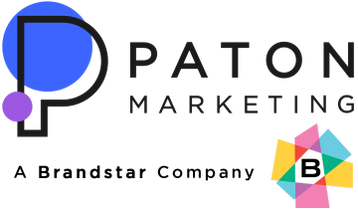HOLLYWOOD — The movie “Field of Dreams” is remembered for many reasons, but one stands out. The statement: “Build It And They Will Come.”
While that was certainly the case in the movie as throngs of people showed up at a baseball field in rural Iowa, it certainly isn’t true for law firms and other businesses hoping to build revenue through their websites.
The message from a leading online marketer is simple: You can build a beautiful website, but maybe, just maybe, no one will come –or even worse. They may not stay.
“The legal profession is one of the top-spending sectors for pay-per-click (PPC) advertising,” said Todd Paton, president of Deerfield Beach-based online marketing firm Paton Marketing. “Unfortunately, these expenditures frequently don’t result in business or meaningful traffic to their websites.”
To help these firms maximize their return on investment, Paton Marketing has created www.gradeyourwebsite.com, a free service that audits a website and scores it based on dozens of criteria. The important feature is that it lists tasks that will result in a better-built website that can help convert visitors to prospects.
“Our goal is to point out how these websites are not as effective as they could be,” said Paton. “And, in many cases even if potential clients land at the site, it may not be a welcoming destination and they could look elsewhere for legal counsel.
“The bottom line is that many law firms have websites that aren’t being visited or creating revenue. They are spending large sums on PPC campaigns which are frequently ineffective because potential clients are being directed to poorly built websites which don’t cater to the needs of visitors.”
According to Paton, these prospects become alienated when arriving at a site. The site may get significant, but very brief traffic. The end result is that they don’t fill out the informational form or call for a consultation.
“These law firms spend money on generating these leads, but then lose them when prospects arrive at the site,” said Paton. “There are ways to maintain the same budgets, but with better results through an improved website.”
The following are some of the website features that are graded:
- The speed of the site
- Mobile accessibility
- Appropriate content built around key words that are sensitive to Google
- SEO “friendliness”
- Social media visibility (Facebook, Twitter, Linkedin) on home page
This report, which takes about 30 seconds to compile, also provides a comprehensive list of “tasks” to complete that will lower or maintain costs and make the website more receptive, informative, and responsive to visitors.
“Keep in mind a website today is a potential client’s first exposure to a law firm,” said Paton. “Years ago, clients could sense the character of a firm by walking into its lobby. Today, the first visit is likely to the website. These prospects must first find the site based on searches and then get the proper information.”
Paton points out that many law firms actually lose clients because the websites are difficult to navigate and don’t necessarily have the proper information.
“It’s almost like walking into a dingy lobby,” said Paton. “The difference is that these lobbies are on a website. Visitors won’t stay long on the site if it is difficult to navigate or if it doesn’t have the information they’re looking for.”
One major conclusion Paton Marketing comes to is that law firms are spending quite a bit on online marketing, but not getting the desired results.
“The legal profession is very crowded online,” he said, “which drives up the cost of key words. It’s very expensive to conduct a PPC campaign, so it just makes sense to have everything working together so that visitors can be converted to qualified prospects.”
According to one study, 80 percent of the most expensive Google ad words are related to the legal profession. Paton said that PPC campaigns can be very effective, but should also be combined with “organic” SEO programs.
“Whether it’s through PPC or organic initiatives, the goal is to get people to your website,” said Paton. “And once they get there it’s important they have a good experience in terms of navigation and proper information. If there’s a good experience, it’s likely the prospect will contact the law firm for a consultation through online registration or phone call requesting a consultation.
“Our grading site points out website deficiencies and provides a plan to correct them,” he said. “Once the problems are identified and fixed, law firms will then have confidence that their websites are functioning properly as a lead generator.”


Stefan
Wow, awesome blog format! How lengthy have you been running a blog for?
you made running a blog glance easy. The overall look of
your site is wonderful, let alone the content material!
You can see similar here sklep internetowy
Emmett
Good article. I’m going through a few of these issues as well..
I saw similar here: Ecommerce
Katherin
Hi there! Do you know if they make any plugins to assist
with Search Engine Optimization? I’m trying to get my blog to rank for some targeted keywords but I’m not seeing very good gains.
If you know of any please share. Cheers! You can read
similar blog here: Sklep online
Research Agency
It’s very interesting! If you need help, look here: ARA Agency
Louiset
Great mix of humor and insight! For additional info, click here: READ MORE. Any thoughts?